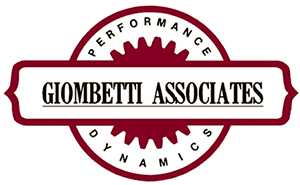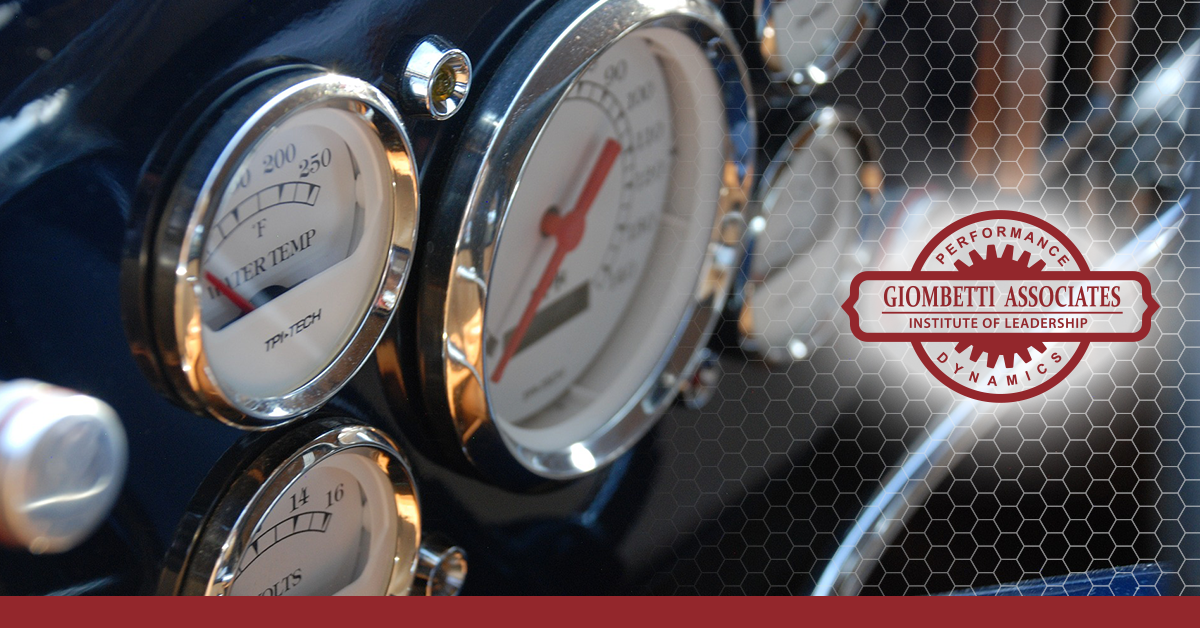
When I took driver’s ed in high school, I first thought about cars having “gauges” that showed various readings (engine temperature, fuel tank fullness, battery status) and “idiot lights” that only alert you when something has gone very wrong (“check engine”). When it comes to self-awareness, why would anyone prefer an idiot light rather than a gauge?
Our personal idiot lights might read “must escape” or “the liquor is talking” or “you’re fired,” whereas if we had those gauges, we might see where we are trending before we have already gone off the rails.
When we are aware of our personal gauges, we may realize that we’re accommodating too little or too much, under or over-communicating, or under or over reflecting on ourselves and how we are deciding too hastily or sluggishly. We can tell when people we know are not tuned up well, when their needles indicate a problem. But we may be the last to know when we are out of sorts, not being our best selves.
We admire people who demonstrate self-awareness. It is part of who we are as people, which is why Socrates said, “the unexamined life is not worth living.”
Self-Management
But once we are more in touch with where the needles are on our gauges, do we rejoice, lament or do something about it? This is where self-management comes in.
I lived most of my life with the idea that, like Popeye, “I yam what I yam.” Even if I knew I could be overly analytical, talk too much or have trouble taking the time to gain more insight and perspective, what could I possibly do about it? Would it not be phony for me to challenge myself and take responsibility to improve, for my own sake, not to mention to benefit everyone who has to put up with me “warts and all?”
It somehow took me most of my 67 years to realize that I am allowed to be my best self. It’s not really “fake it till you make it” as much as “free to be you and me.”
There is a classic Bob Newhart sketch, where he is an impatient therapist and tells his flawed patients to “just stop it!” Clearly, the joke is that it isn’t that easy. But I suspect that what makes it especially difficult to be our best is that we feel we don’t have the insight to see ourselves clearly, and if we could, don’t have the permission to do much about it. But whose permission are we wanting? Our family and friends? Our therapist or boss? God?
I think all those beings, superior or ordinary, give us a thumbs up to know ourselves and be our best selves. And if we were not able to do this by ourselves, if we need a coach, a guide, a way to see those needles, a way to open the hood and tune ourselves up, I can’t think of a single person in my life who would object to me being a better me, so “Ira, please improve yourself!”
In conclusion, I am glad to be doing the work I am, assessing and coaching, using the Performance Dynamics® tool. I have to say, I am also the beneficiary of helping others to do this work, being inspired by those who are seeing their gauges and can be tuned. It gives me great optimism about who we are, as homo sapiens, wise women and men.
About Our Guest Blogger
 Ira Bryck helps leaders grow. He founded and ran, for 25 years, the Family Business Center of Pioneer Valley, which provided expert and peer learning through forums, workshops, consulting and roundtables. His new work includes coaching business leaders, personality assessments for professional and personal development, and facilitating executive peer groups. Ira is the author of three plays about life in a family business, presented as “edutainment” at conferences worldwide. His third play, A Tough Nut to Crack, is based on his years in his family’s 4th generation childrenswear business. He is the host of the Western Mass Business Show on WHMP, and so far has interviewed more than 300 entrepreneurs. He has created a blended format of strategic questioning and role-playing that assists entrepreneurs in finding new solutions.
Ira Bryck helps leaders grow. He founded and ran, for 25 years, the Family Business Center of Pioneer Valley, which provided expert and peer learning through forums, workshops, consulting and roundtables. His new work includes coaching business leaders, personality assessments for professional and personal development, and facilitating executive peer groups. Ira is the author of three plays about life in a family business, presented as “edutainment” at conferences worldwide. His third play, A Tough Nut to Crack, is based on his years in his family’s 4th generation childrenswear business. He is the host of the Western Mass Business Show on WHMP, and so far has interviewed more than 300 entrepreneurs. He has created a blended format of strategic questioning and role-playing that assists entrepreneurs in finding new solutions.

